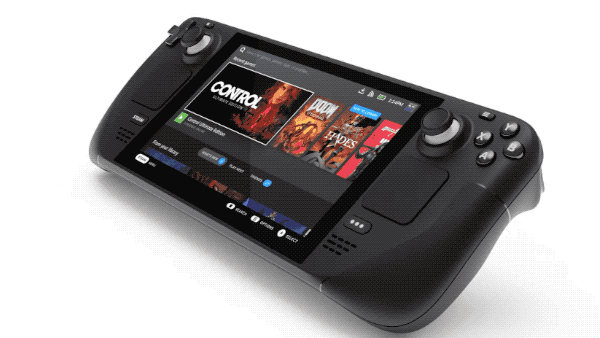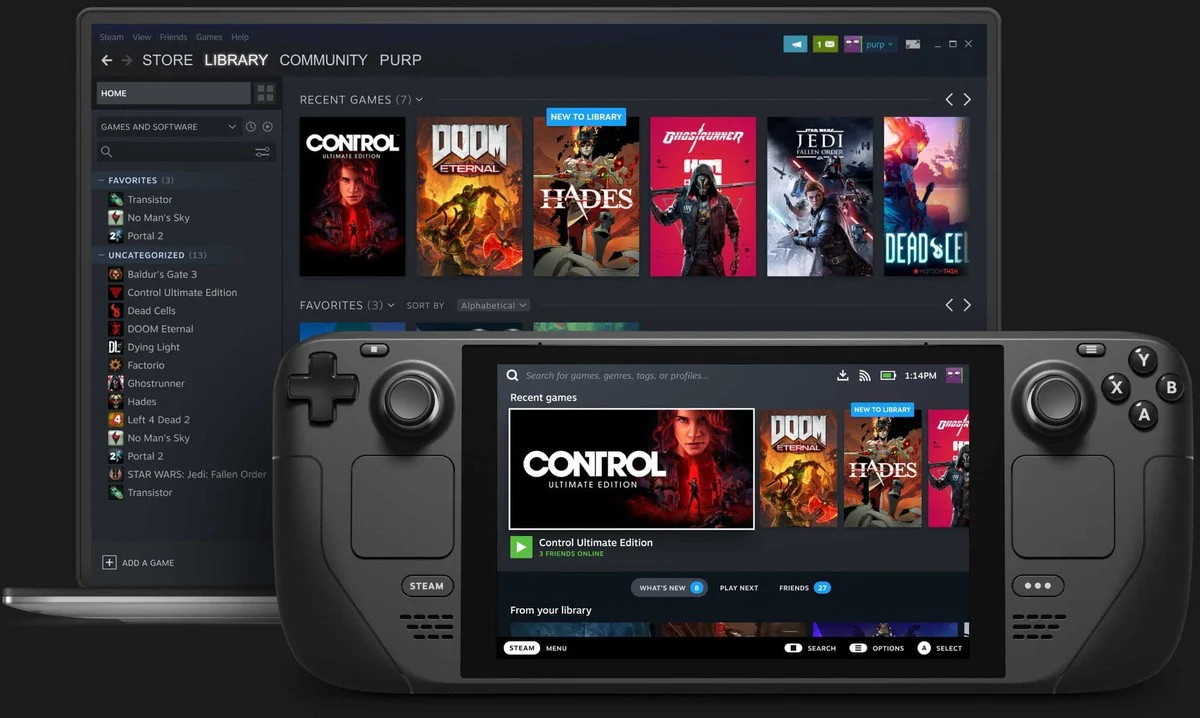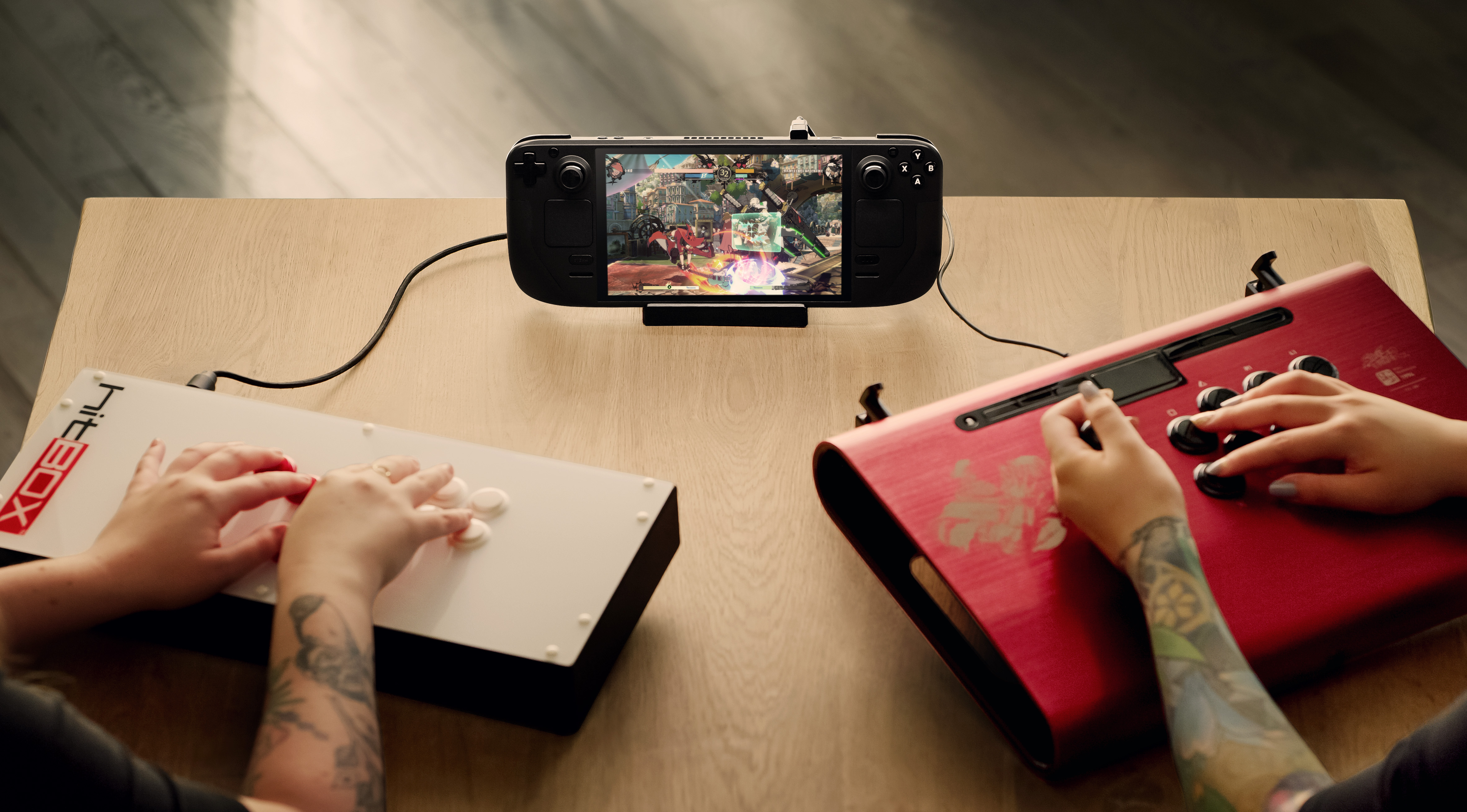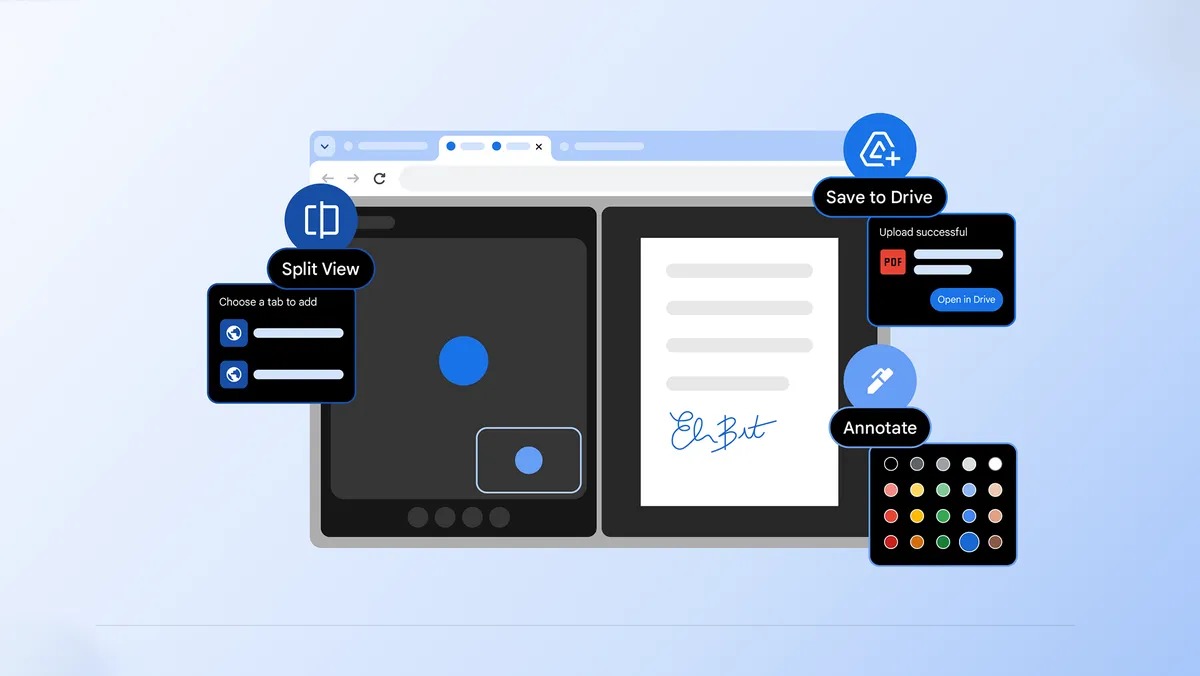Valve’s Steam Deck is an oddball gaming machine — and I love everything about it
No one asked for the Steam Deck... but I now really want one

Here at Tom’s Guide our expert editors are committed to bringing you the best news, reviews and guides to help you stay informed and ahead of the curve!
You are now subscribed
Your newsletter sign-up was successful
Want to add more newsletters?

Daily (Mon-Sun)
Tom's Guide Daily
Sign up to get the latest updates on all of your favorite content! From cutting-edge tech news and the hottest streaming buzz to unbeatable deals on the best products and in-depth reviews, we’ve got you covered.

Weekly on Thursday
Tom's AI Guide
Be AI savvy with your weekly newsletter summing up all the biggest AI news you need to know. Plus, analysis from our AI editor and tips on how to use the latest AI tools!

Weekly on Friday
Tom's iGuide
Unlock the vast world of Apple news straight to your inbox. With coverage on everything from exciting product launches to essential software updates, this is your go-to source for the latest updates on all the best Apple content.

Weekly on Monday
Tom's Streaming Guide
Our weekly newsletter is expertly crafted to immerse you in the world of streaming. Stay updated on the latest releases and our top recommendations across your favorite streaming platforms.
Join the club
Get full access to premium articles, exclusive features and a growing list of member rewards.
When I first saw the Valve Steam Deck I thought it was a bit of a joke; my initial reaction was, "Oh it's another small kickstart company’s attempt to make a handheld PC gaming device that will never get made or yield lackluster hardware." But then I saw that it’s actually official Valve hardware, so my interest was piqued.
Now Valve has a mixed reputation when it comes to hardware. The Steam Machine and Steam Controller were largely failures, yet the HTC Vive, which Valve had a hand in, and the Valve Index both managed to get a place on our best VR headset list. So after chewing it over, I decided that I’m rather curious about the Steam Deck; heck, I might even love it for its ambitious nature.
- These are the best PC games of 2021 so far
- How to pre-order Steam Deck: where to buy Valve’s handheld gaming PC
- How to check if a Steam game works on Steam Deck
- Opposite view: Steam Deck looks great, but Valve’s hardware record doesn’t
While the console itself is hardly going to win any industrial design awards, seeing IGN’s hands-on with the Steam Deck has rather sold me on the concept of handheld PC gaming, especially when other devices that have attempted to do the same have failed.
All hands on Deck

It would be easy to compare the Steam Deck to the Nintendo Switch, or the upcoming Nintendo Switch OLED — not just in terms of form factor, but also the fact that they both aim to deliver an around 720p handheld gaming experience. Both can run Doom Eternal for example, so have some crossover; Divinity Original Sin 2 on the Switch even syncs with the Steam version on PCs.
However, the Switch is about more than its hardware, with Nintendo's console having a huge appeal due to its stellar exclusive games, more so with Breath of the Wild 2 and Metroid Dread coming. Whereas the Steam Deck is more about an open ecosystem with support for games you might usually see running on one of our distinctly unportable best gaming PCs. The pair of gaming machines are effectively targeting two mostly very different gaming areas.
That said they both present a vision of portable gaming. And as someone who mostly uses his Switch in its handheld mode, I do see the appeal of handheld PC gaming.
I have a healthy collection of Steam games that I predominantly play on my desktop PC; occasionally I might use my less powerful gaming laptop. But there are times when I’d love to be able to lie back on my sofa and play the likes of Warhammer 2 Total War, Team Fortress 2, and a myriad of games that aren’t available or don't play well on other platforms.
Get instant access to breaking news, the hottest reviews, great deals and helpful tips.
This is possible with some streaming services, but my internet is slower than treacle running off a brillo pad and the whole experience can be very janky. Even Xbox Cloud Gaming via Xbox Game Pass isn’t solid on a 5G connection, in my experience. So game streaming isn’t the panacea to my lazy PC gaming problem.
But as much as the Steam Deck looks like an oddball mutated Switch, it could be the answer. That’s because it will have the power to run games natively; sure the graphics aren't likely to be fully cranked and I wouldn't expect screaming frame rates. But IGN reported gaming performance is actually fairly solid even in demanding titles like Control.
And the Steam Deck controls are apparently fairly responsive. So the idea of playing a larger strategy game like the aforementioned Warhammer 2 Total War without a mouse and keyboard doesn't seem totally ridiculous.
Hardcore PC gamers might be horrified at the idea of playing PC games on a machine with some two teraflops of graphics power. However, I don’t see the Steam Deck as standalone machine. In my eyes, it's more a device for extending my PC gaming beyond my main rig.
Like many others I have a backlog of Steam games, thanks to Steam sales seeing me snap up more games than I have time to play. But being able to access my Steam library while on a commute with the Steam Deck is one way to get through a wealth of games; if it also helps me monetarily forget the hell of the London Underground's Central Line, then even better.
Decked out with games

Not only does the Steam Deck promise to give me access to a large part of my PC game library in a handheld device, the open nature of the platform means it has the potential to be a wonderful indie gaming machine.
Steam is arguably a developer-friendly platform: as much as it takes a cut out of developer’s game sales, it provides the software and distribution to get their games out to people. As such, if the Steam Deck does sell well, it could encourage more indie developers to make games specifically for it. Or at least offer custom controls for the Steam Deck, without needing to effectively tune the game for non-PC platforms.
Then there’s access to the Steam Workshop. Skyrim may run on the Switch but it doesn't have access to the myriad of mods the PC version does on Steam. But as it’s basically a compact PC, the Steam Deck should allow you to play Skyrim will all the mods in place. And with Steam Cloud saves, someone like me who’s sunk hundreds of hours in Skyrim can simply carry on in handheld mode rather than start a whole new game.
And there’s a huge raft of classic games that aren’t available on other platforms that could suddenly be enjoyed on the move with the Steam Deck. I’m thinking of Thief 2, Deus Ex, Planescape Torment and more. Looking at the Steam Deck as a machine that can run modern games reasonably, as well as offer access to hundreds of classic PC games, its appeal becomes more apparent.
Gateway to PC gaming

I also see the Steam Deck as a good way to partially democratize PC gaming. Often seen as a more hardcore gaming platform in the face of the likes of the PS5 and Xbox Series X, PC gaming isn’t hugely accessible. Sure, you can build a gaming rig for less than $1,000, but it’s not likely to give you the best experience in modern and future games.
With prices starting at $399, the Steam Deck is arguably one of the cheapest ways to get into PC gaming. Diehard PC gamers may scoff at this, but dropping a hefty wad of cash on a desktop gaming rig isn’t easy for everyone. Furthermore, there's a degree of familiarity gaming on what’s basically a gamepad bisected by a display and small computer, rather than needing to learn key bindings and tune mouse sensitivity as you would in traditional PC gaming.
And once again, the Steam Deck could be one of the most affordable ways to access a huge raft of older games without needing the space or expense of a desktop PC or capable laptop.
A stealthy laptop replacement?

The final element of the Steam Deck that's caught my attention is it’s not just a handheld PC. It could potentially be a casual productivity device and laptop replacement.
Thanks to a docking accessory, the Steam Deck can be connected to an external monitor, Ethernet, mouse and keyboard. And while the default operating system is SteamOS, you can apparently install Windows or Linux on the Steam Deck, potentially turning it into a mini desktop PC with a Zen 2 Ryzen processors and RDNA 2 graphics providing enough power for mot everyday tasks.
Furthermore, it looks like the Chrome browser is supported on SteamOS, meaning you could access the G Suite of productivity tools without needing to install any apps or programs. This should also allow access to Xbox Cloud Streaming through Chrome, further opening up another game service to the Steam Deck; the Switch can't dream of doing that… yet.
So for people who don't want one of our best cheap laptops or simply don’t want to lug a laptop between home and the office, the Steam Deck could be a novel alternative device.
The Steam Deck may look a little odd with the position of its joysticks and button placement. And no one has specifically asked for such a device.
But having thought about the above points, I’m strangely excited about the Steam Deck and can’t wait to give it a go. It might not revolutionize PC gaming, but it could open it up in a variety of smart and interesting ways.

Roland Moore-Colyer a Managing Editor at Tom’s Guide with a focus on news, features and opinion articles. He often writes about gaming, phones, laptops and other bits of hardware; he’s also got an interest in cars. When not at his desk Roland can be found wandering around London, often with a look of curiosity on his face.
 Club Benefits
Club Benefits










